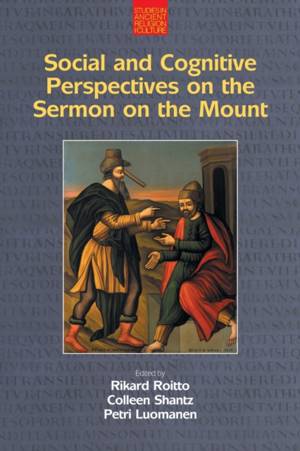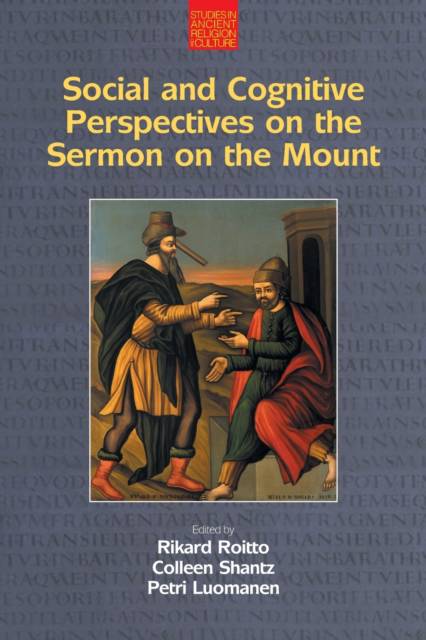
- Retrait gratuit dans votre magasin Club
- 7.000.000 titres dans notre catalogue
- Payer en toute sécurité
- Toujours un magasin près de chez vous
- Retrait gratuit dans votre magasin Club
- 7.000.0000 titres dans notre catalogue
- Payer en toute sécurité
- Toujours un magasin près de chez vous
Social and Cognitive Perspectives on the Sermon on the Mount
64,45 €
+ 128 points
Description
Social and Cognitive Perspectives on the Sermon on the Mount offers fresh readings of themes and individual sayings in the Sermon on the Mount (SM) using socio-cognitive approaches. Because these approaches are invested in patterns of human cognition and social mechanisms, the resulting collection highlights the persistent appeal and persuasiveness of the SM: from innate moral drives, to the biology of emotion and risk-taking, to the formation and obliteration of in-group/out-group distinctions. Through these theories the authors show why--even across cultures and history--the SM continues to grip both individual minds and groups of people in order to shape moral communities. Classical historical-critical readings interpret the sermon according to the conventions of literature, seeking a relationship to other texts and ideas. By contrast our volume explores the SM not so much for the logical and historical relationships to other literary traditions, but also--and perhaps more importantly--for the ways it stimulates emotional, biologically, culturally habituated, evolutionarily preconditioned, and socially sanctioned characteristics of humans. In short, the volume shines a light on the action-inducing properties of the text. The volume will introduce a broader group of scholars, students, and clergy to the relevance of social scientific and cognitive studies for interpretation of the Bible, by applying these approaches to possibly the most read and discussed text in the Bible.
Spécifications
Parties prenantes
- Editeur:
Contenu
- Nombre de pages :
- 256
- Langue:
- Anglais
- Collection :
Caractéristiques
- EAN:
- 9781781794227
- Date de parution :
- 01-03-21
- Format:
- Livre broché
- Format numérique:
- Trade paperback (VS)
- Dimensions :
- 156 mm x 234 mm
- Poids :
- 503 g

Les avis
Nous publions uniquement les avis qui respectent les conditions requises. Consultez nos conditions pour les avis.





